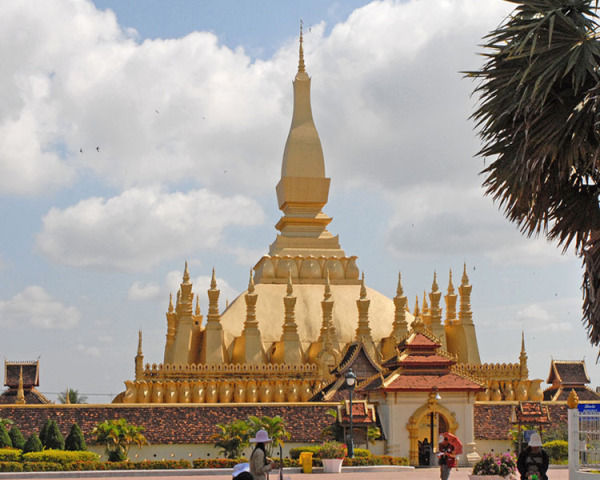Ever wondered what is there to know about the country of Laos? This article will give you a brief introduction to Laos and help you learn more about the country.
Facts About Laos
Laos, formerly known as the ‘Lao Peoples Democratic Republic’, is a country that is located in southeast Asia; surrounded by countries like Vietnam, Cambodia, Thailand, Myanmar and China. This small, land locked country, considered to be one of Asia’s poorest countries, boasts of traditions and a culture that dates all the way back to 1353 AD which was the time when the Lao Kingdom of Lan Xang was established. The country has had a rough past which included domination by Thailand and later becoming a part of the French Indochina. The economy of the country has flourished significantly since the government started encouraging privatization and opened up to private enterprises. The mountainous geography of the nation is also putting it on the world map as a destination for tourists seeking the thrill of nature and wilderness. Laos is known to attract not only those that love nature, but also those who love ancient places and backpacking across places like the gothic limestone karsts and the historic city of Luang Prabang.

Interesting Information About Laos
-
The earliest history of Laos can be traced back to a time, 50,000 years ago, when the first modern humans are believed to have come to Southeast Asia.
-
Chinese ancient texts dating back to the 5th century have mentions of a kingdom in southern Laos and refer to it as Chenla.
-
The myth of the creation of the Lao people can be read in the book called Nithan Khun Borom. It tells a fantastic story of the discovery of two gourds out of which came dark and light skinned people who later formed the peoples of Lao.
-
The kingdom of Lan Xang, established by Fa Ngum, was the first extended Lao kingdom and was established around the year 1353.
-
The reign of King Visoun, which began in 1501, is considered to be the golden era for the kingdom.
-
Towards more modern times, the kingdom was divided and came under the supervision of Thailand who was later replaced by the French in 1893.
-
Laos finally became independent on 19 July 1949.
-
It became a republic on 2 December 1975 and adopted its constitution on 14 August 1991.
-
Laos is a Communist state with the official language of the government being Lao.
-
The legal system of Laos is a mix of traditional customs, socialist practices and French norms and procedures.
-
The official currency of Laos is Lao kip (LAK).
-
The country is spread over an area of 236,800 sq km and has a population of 6,993,767 as of July 2010.
-
The country is rich in natural resources like timber, gypsum, tin, gold, and other gemstones.
-
The highest point in Laos is Phou Bia, which stands at a height of 2,817 m (9240 ft), and the lowest point is the Mekong River at a height of 70 m (230 ft).
-
The occupation that provides the maximum (about 80%) number of jobs is agriculture.
-
The main exports coming out of Laos are wood products, coffee, electricity, tin, copper and gold.
-
The months of May to November are the monsoon months in Laos which is followed by a dry period.
-
The best time to visit Laos is during the dry spell as the absence of the rains makes travel easy and the temperature is also an accommodating 15 to 38 degrees C.
-
As far as tourism is concerned, Laos is not an expensive destination to go to, and payments can be made with the Thai Baht or the US Dollar.
-
The culture of Laos reflects a heavy influence of the cultures of India and China.
-
Sticky rice, soups, chopped raw meat (Laab – a dish of finely chopped meat served with spices) and food gathered from the forests are common in the meals; especially in the rural areas.
-
Some minority groups follow the practice of sacrificing large buffalos. However, this practice is now being discouraged by the government.
-
The government maintains a strict control over the media in Laos.
-
An interesting thing that some people do when in Laos is to cycle from Luang Prabang to Hanoi; a trip that takes up to 15 days to conclude.
-
The main places to see in Laos are Plain of Jars, Pha That Luang, Pak Ou Caves, Wat Phu Champasak and Khone Phapheng.
See also
More from iloveindia.com
- Home Remedies | Ayurveda | Vastu | Yoga | Feng Shui | Tattoos | Fitness | Garden | Nutrition | Parenting | Bikes | Cars | Baby Care | Indian Weddings | Festivals | Party ideas | Horoscope 2015 | Pets | Finance | Figures of Speech | Hotels in India : Delhi | Hyderabad | Chennai | Mumbai | Kolkata | Bangalore | Ahmedabad | Jaipur
- Contact Us Careers Disclaimer Privacy Policy Advertise With Us Lifestyle Sitemap Copyright iloveindia.com. All Rights Reserved.







